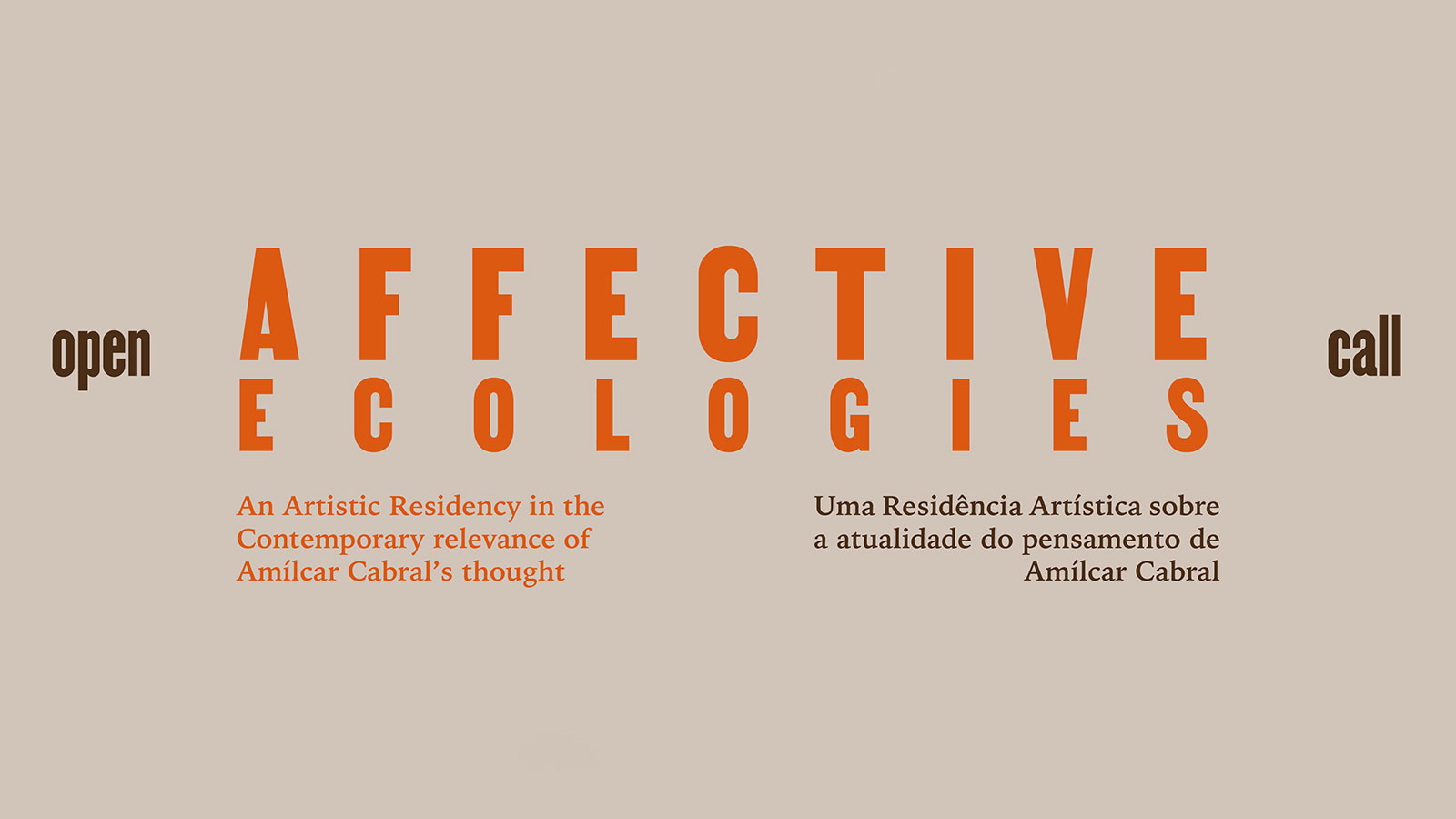“Affective Ecologies” – Hangar/Gulbenkian Artistic Residency

The “Affective Ecologies” project invites a group of artists to develop artistic exchanges for a two-week period, in an intensive artistic residency format, at Hangar – Centro de Investigação Artística, in Lisbon, with the support of the Calouste Gulbenkian Foundation. Four artists in the field of the Visual Arts, from Angola, Cape Verde, Guinea-Bissau, Mozambique or São Tomé and Príncipe, aged between 25 and 35, are to be selected.
The four artists will be chosen following an open call, which runs from 18 June to 18 July.
The residency programme is based on a collaborative model, aimed at creating models for action and reflection on creative and artistic processes, and is also intended to promote the international projection of the participating artists. With the support of curators Cindy Sissokho (France) and Paula Nascimento (Angola/Portugal), the programme will have a strong component of artistic interventions focused on the local community and a programme that includes a variety of events (talks, seminars, performances, concerts, masterclasses, workshops), designed to attract diverse audiences, seeking to establish a creative dialogue between them and the artists.
In addition to the occasional co-operations and participatory interactions, guest artists and researchers will also be present. The aim of these complementary activities is to enrich the artists’ experience by providing a broad and stimulating context for their artistic practice during the residency.
In the year that marks the 50th anniversary of the Carnation Revolution (25th of April 1974) of the Portuguese democracy, “Affective Ecologies” draws attention to the contributions of Amílcar Cabral and his singular voice in anti-colonial revolutions, affirming African culture, national liberation and resistance, encouraging reflection on the importance of art and culture for development through a sustainable, community-based approach.
Applications